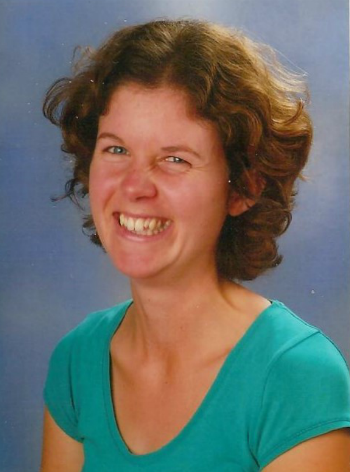Employers and Universities: Work with us?

60 Second Interview: Primary school teacher
Kirsty originally wanted to be a geologist, but giving talks in a classroom convinced her to become a primary school teacher. She explains how she got started and what the job is really like.
Name: Kirsty Morris

Company: Shirley Primary School, Cambridge
Industry: Education & Teaching
What is your job? Primary school teacher
How long have you been doing this job? 6 years
Education
Degree: MSci Geology and PGCE in Primary Education.
A-levels: maths, physics, geography.
1. What was your very first job?
This was my first full-time job.
2. What did you want to do when you were at school?
A geologist!
3. What made you want to do your current job?
My mum was a teacher, but it was probably my friends doing teacher training that made me more interested in teaching as a career.
4. How did you get there?
While finishing my masters in geology, I applied to do a PGCE in Exeter. Before applying, I had completed a module called ‘Earth Sciences into Schools’ as part of my degree. That involved going into a local primary school once a week to take small groups or give presentations to one or more classes about different aspects of geology. I had also volunteered in a special needs school one morning a week for four years while doing my degree, and had been a leader with Girl Guides.
5. What is a typical day like?
As a full-time primary school teacher, the day starts at 7am when I leave for work, arriving at school at 7.15am. The first thing to do is to set up the laptop, loading up the smartboard presentation for the day, the register and emails.
After that, it’s all about setting the activities for the day, collecting equipment and getting any paper resources ready. At 8.50 I go to meet the children on the playground, and from then the day passes in a blur of lessons, assembly, sorting out any problems which arise and setting up for the next activity.
On most evenings there is a meeting straight after the children leave; either a staff meeting, team meeting or meeting with a colleague for planning. But around all that, the marking needs to be done, resources need to be printed ready for the next day, emails need to be replied to Usually I leave work at 6pm.
Occasionally there is another half hour or so of work to catch up on at home, and generally I do a couple of hours work on a Sunday afternoon to prepare for the upcoming week.
6. What's the best thing about your job?
I love the fact that I am on my feet all day; I couldn’t do an office job! My job also allows me to be creative and use a range of skills. From the start, teaching allows a larger amount of responsibility and freedom than in many other jobs. As the teacher, you’re planning what to teach through the whole day, and are responsible from the very beginning for 30 children. You often manage at least one teaching assistant too.
7. What is the most challenging thing about your job?
The hours are long during the term time, as mentioned above, so it can be exhausting. However the holidays come round at a good frequency!
8. What advice do you have for people who want to do what you do?
Do work experience in a range of different schools, as each is very different and will have a different feel. Also talk to a range of teachers to find how their work varies and how they manage their workload; everyone works differently.
9. What things do you wish you’d known before starting your career?
I can’t think of anything. I’m definitely glad I decided to train to become a teacher!
10. Where would you like to be in five years?
I would be happy to be still teaching locally.
You might also like...
Career Zone: Education & Teaching
60 Second Interview: Secondary School Teacher
6 Ways to Improve Your Time Management Skills
Image credits
Main image via Freepik
